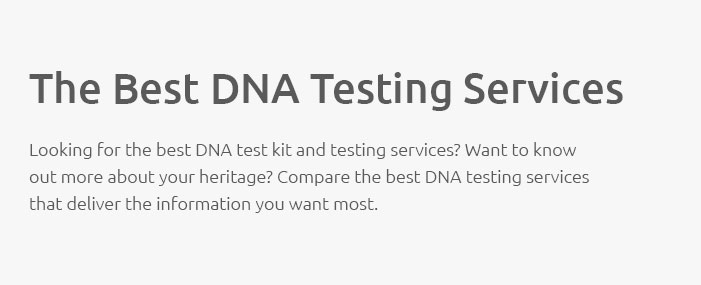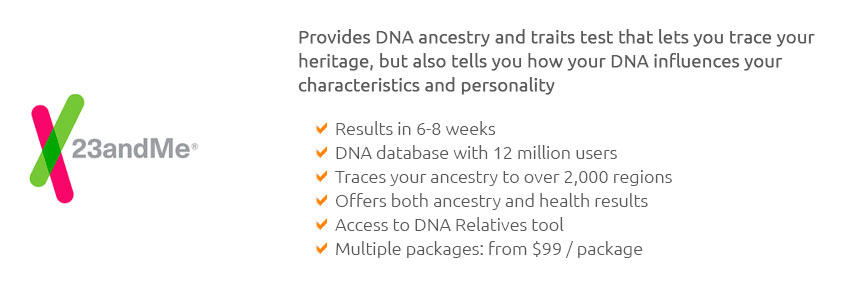 |
 |
 |
|---|
 |
 |
|---|
 |
|
|---|---|
 |
 |
 |
 |
 |
 |
 |
 |
 |
 |
 |
 |
 |
 |
 |
 |
|---|
Exploring DNA Tests for Disease Detection: A Comprehensive OverviewIn recent years, the field of genetics has made remarkable strides, bringing the world closer to understanding the intricate tapestry of human health. One of the most profound advancements in this realm is the development of DNA tests for disease detection, which have revolutionized our approach to diagnosing and predicting various medical conditions. These tests, leveraging the power of genomic sequencing, offer insights into an individual's genetic predisposition to certain diseases, allowing for more personalized and proactive healthcare strategies. With the growing popularity of DNA testing, it is essential to navigate the diverse landscape of available options to understand their implications and applications fully. Several companies have emerged as frontrunners in the market, each offering unique approaches to DNA testing for diseases. Among them, 23andMe stands out with its user-friendly interface and comprehensive health reports that cover a wide range of conditions, from inherited diseases to complex traits. By analyzing over 600,000 genetic markers, 23andMe provides a broad overview of potential health risks, albeit with an emphasis on common variants that may not capture rare genetic conditions. While its accessibility and ease of use are commendable, critics argue that its reliance on a limited set of markers might not provide the depth of information some users seek. In contrast, Invitae takes a more focused approach, specializing in clinical-grade genetic testing that is often recommended by healthcare professionals. Invitae's strength lies in its extensive panels tailored to specific health concerns, such as cardiovascular diseases, hereditary cancers, and neurological disorders. By offering tests that target specific genes known to be associated with certain diseases, Invitae provides a more precise assessment of genetic risks. However, this precision comes at a cost, as the tests can be more expensive and typically require a doctor's referral. Another noteworthy option is Color Genomics, which strikes a balance between accessibility and depth by providing affordable, physician-ordered genetic tests. Color focuses on well-researched genes related to common hereditary conditions, offering actionable insights for individuals and their healthcare providers. The company's integration with clinical support services ensures that users receive guidance on interpreting their results, which can be particularly beneficial for those navigating complex health information for the first time. As these examples illustrate, the choice of a DNA test for disease detection hinges on several factors, including the scope of information desired, budget considerations, and the need for medical guidance. For individuals seeking a broad understanding of their genetic predispositions, direct-to-consumer options like 23andMe might suffice. However, those with specific health concerns or a family history of certain diseases may find greater value in clinical-grade tests offered by companies like Invitae or Color Genomics. It is important to approach DNA testing with a critical mind, understanding both its potential and its limitations. While these tests can provide valuable insights, they are not definitive diagnoses and should be considered as part of a broader health assessment strategy. Furthermore, the ethical implications of genetic testing, including privacy concerns and the psychological impact of learning about one's genetic risks, should not be overlooked. As the field of genomics continues to evolve, it holds promise for more personalized and effective healthcare, yet it requires careful consideration and informed decision-making by consumers. https://utswmed.org/cancer/support-services/education-resources/what-to-know-genetic-testing/
Genetic testing can help identify diseases that have run in your family. Learn how DNA screening may detect and prevent hereditary health risks. https://www.23andme.com/?srsltid=AfmBOoopOjBWicNPsManhyg-jNDkIrJJIemDNq0WEKEgrkRINPwShB9m
Detects 200x more hereditary disease-causing variants than our Personal Genome Service reports. ... Screens for 55+ clinically ... https://my.clevelandclinic.org/health/diagnostics/23065-dna-test--genetic-testing
What diseases can be detected through genetic testing? - Down syndrome - Huntington's disease - Cystic fibrosis - Sickle cell disease ...
|
|---|